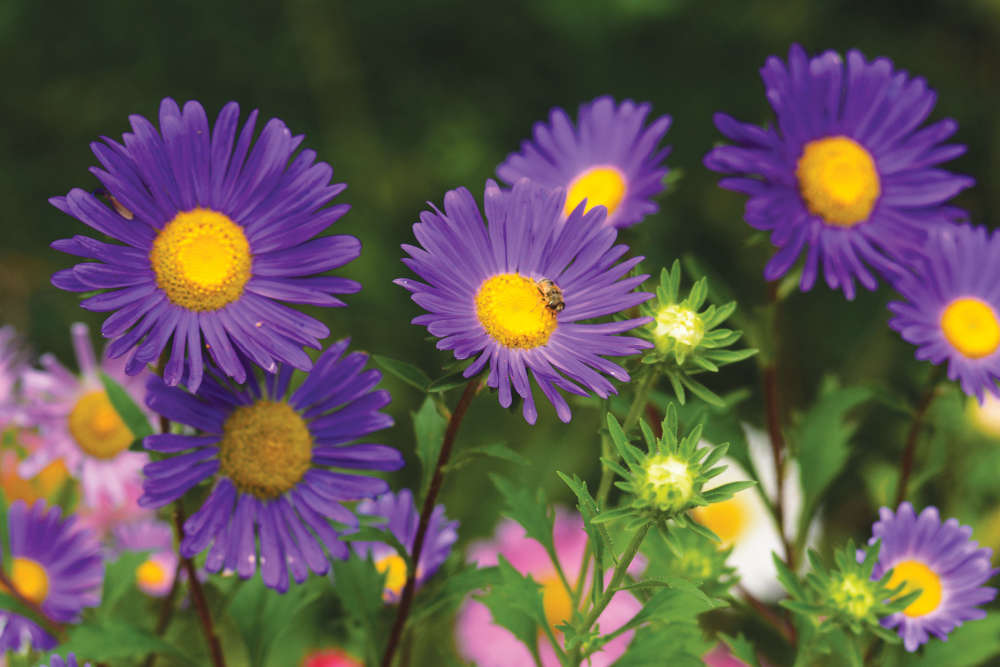
For a supernova finale in the autumn border, nothing outperforms asters, says Flo Whitaker. Even their name means ‘star’ – how perfect.
The aster family is a large one – although not as extensive as it once was. In a horticultural version of ‘Who Do You Think You Are?’ taxonomists, (scientists who study the ‘DNA’ of plants) have reclassified many. It appears some are more closely related to sunflowers or solidago, (Golden Rod). What does this scandalous family drama mean for the average gardener? Well, expect to find some familiar faces bearing unfamiliar name labels at the garden centre. Chances are, the ‘aster’ you’ve been referring to for donkey’s years, isn’t. However, their traditional, all-encompassing name, ‘Michaelmas Daisy’ will doubtless stick around forever and also indicates their peak blooming time, (29th September is the feast day of St Michael).
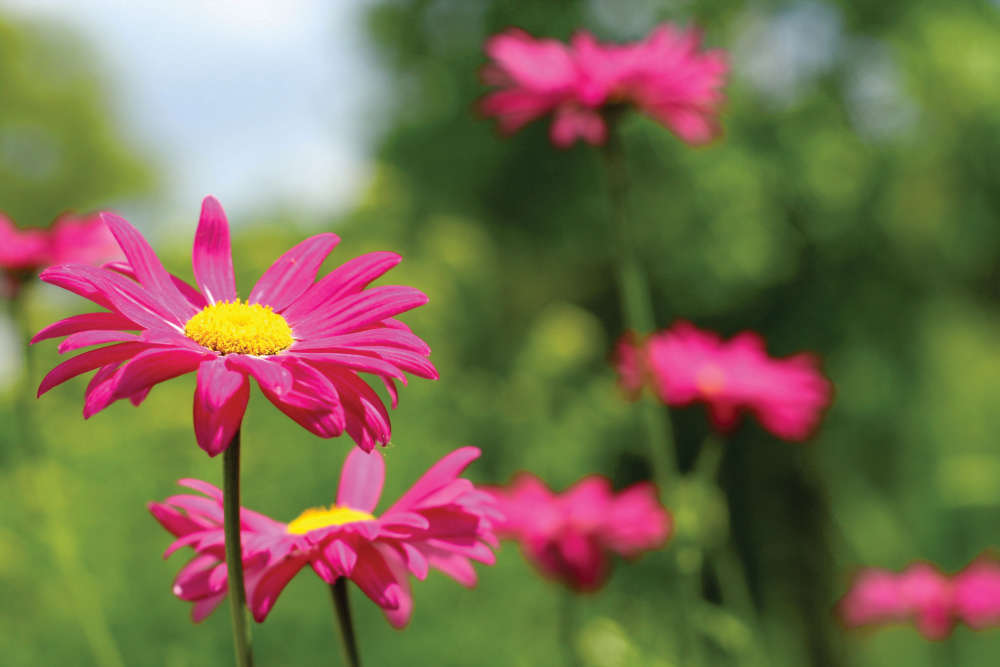
Perennial asters have a multi-branching habit with clouds of starry, daisy-like flowers, typically in shades of pinky-red, white and endless variations in the mauve/lilac/blue spectrum. Their trademark golden stamens are perfectly highlighted in autumn light –they’re also a valuable late-season food source for pollinating insects. From short-growers, (20-40cms) to lofty, back-of-the-border characters, reaching two metres or more, there is an obliging, easy-going aster to fill the gap. Asters are mostly trouble-free, although powdery mildew can affect them, but most modern varieties have been bred with mildew-resistance. Annual forms, (Callistephus), commonly known as ‘China/Chinese’ asters, make terrific cut flowers. The seed costs next to nothing and an April sowing will give you buckets of blooms from July onwards.
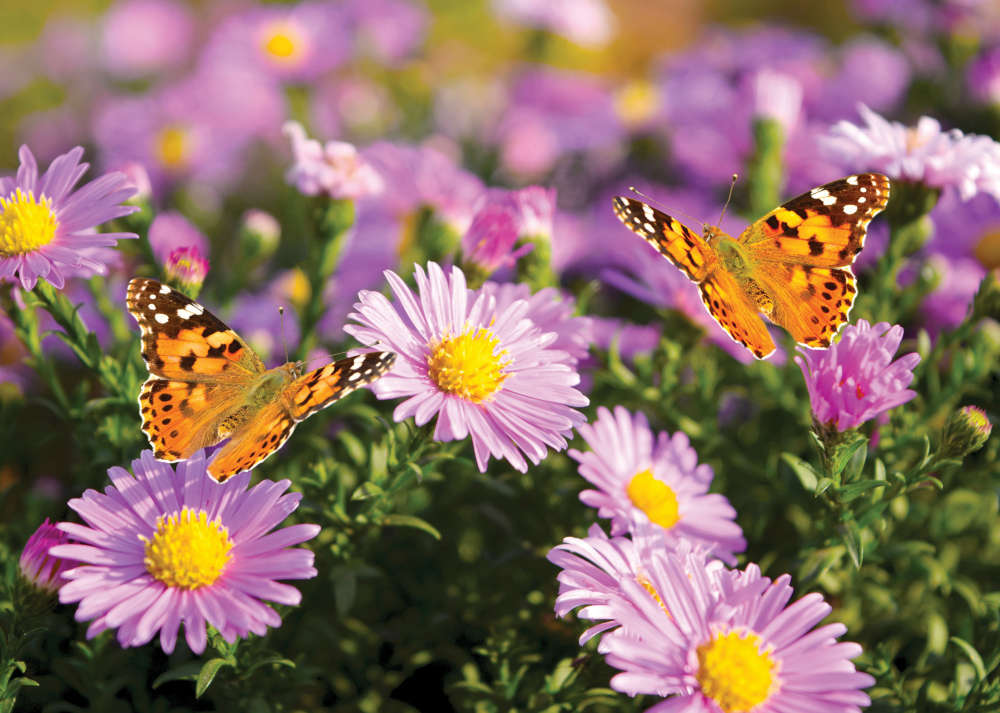
Whatever their botanical classifications, ‘asters’ require similar conditions; a sunny spot in moisture-retentive but well-drained soil. Most garden cultivars are descended from wild forms indigenous to American prairies, where winter temperatures may dip to -20⁰C, so an English winter holds no fear for them. What kills them is wet. Waterlogged soil quickly rots their roots – this can be particularly troublesome withsticky Wealden clay. Trial and error is the best bet. There’s always a spot in a border that’s a little more elevated/free draining than surrounding areas and some varieties will be more moisture-tolerant than others. A good way to keep a favourite variety going is to divide plants in March/April, just as the first shoots are emerging. Asters make tangled, fibrous mats of roots and are easy to lift and split. Plants naturally spread outwards as they grow and an established clump will often have a baldingpatch at its centre. Throw this part on the compost heap and use the newer, vigorous growth at the edges. Replant sections into the border, but save a few pieces forpotting into gritty compost. They can be grown on throughout summer and planted out in autumn. As an insurance against winter wet, overwinter a few pots in a cold frame to provide robust new plants the following spring.

 SPECIAL OFFER: General Admission Tickets To The Al Shira’aa Hickstead Derby Meeting
SPECIAL OFFER: General Admission Tickets To The Al Shira’aa Hickstead Derby Meeting
 Join Dementia Action Week
Join Dementia Action Week
 What to Watch in May 2024
What to Watch in May 2024
 Tracing the Rails
Tracing the Rails
 NEW COMPETITION: Win Four VIP Tickets For More Radio Live 2024
NEW COMPETITION: Win Four VIP Tickets For More Radio Live 2024
 Be Well, Move Happy: Eating Awareness and Deskercise
Be Well, Move Happy: Eating Awareness and Deskercise
 Riding to Success
Riding to Success
 Home Style: Home on Wheels
Home Style: Home on Wheels
 Home Style: Seeing the Light
Home Style: Seeing the Light
 Step out for St Catherine’s Hospice
Step out for St Catherine’s Hospice
 If You Ask Me... This is Beyoncé Country
If You Ask Me... This is Beyoncé Country
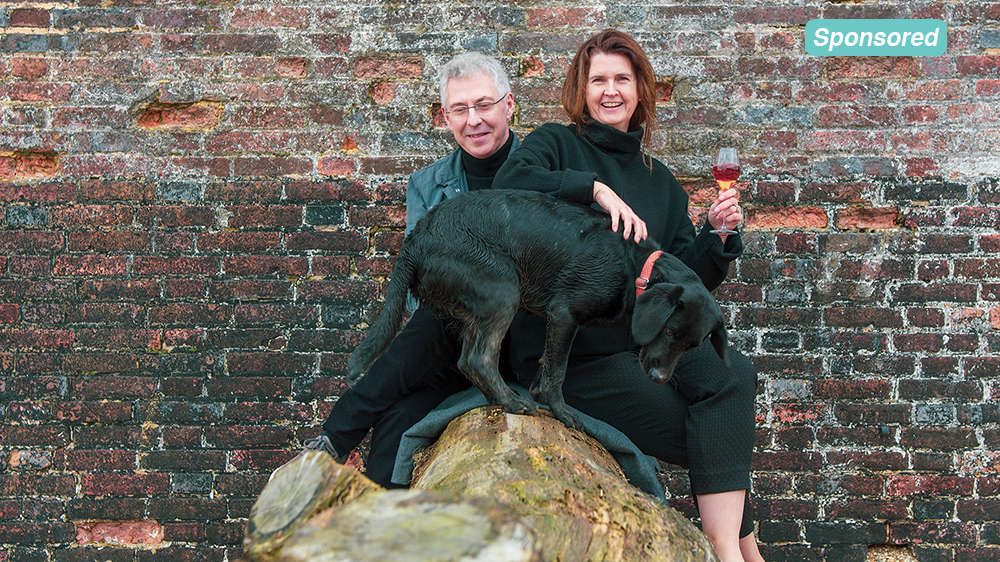 Artelium Wine – Crafted in Sussex
Artelium Wine – Crafted in Sussex
 Homes Extra: Expanding Space
Homes Extra: Expanding Space
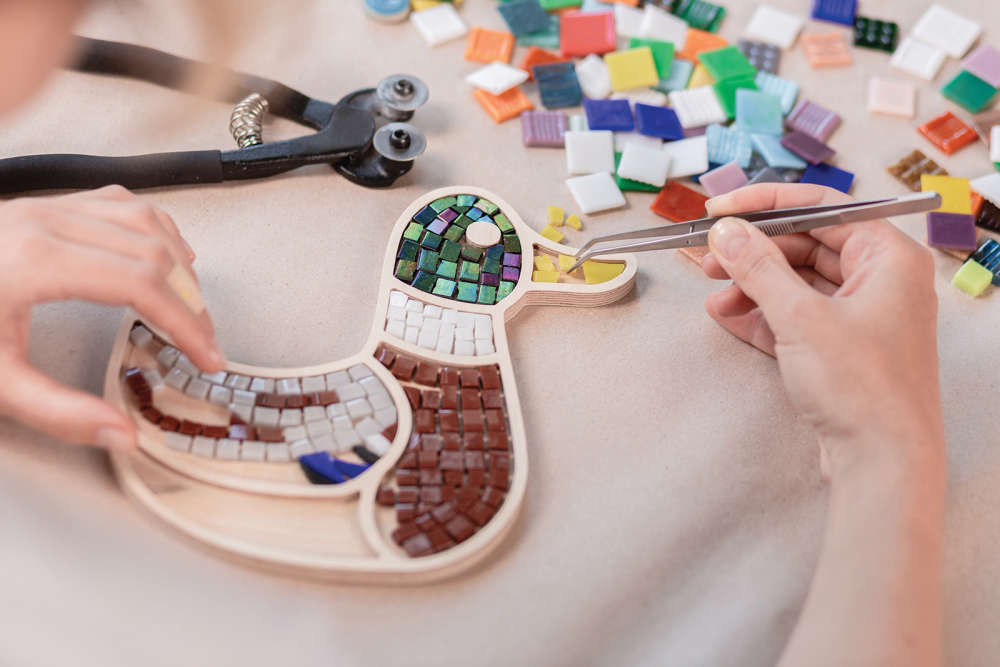 Kids Zone: Mosaic Art
Kids Zone: Mosaic Art
 Be Well, Move Happy: Gardening & Connecting with Nature
Be Well, Move Happy: Gardening & Connecting with Nature
 Homes for Ukraine: Opening Your Home and Your Heart
Homes for Ukraine: Opening Your Home and Your Heart
 Charity: Age Concern Hassocks
Charity: Age Concern Hassocks
 Another New Clinic For Sussex Audiology
Another New Clinic For Sussex Audiology
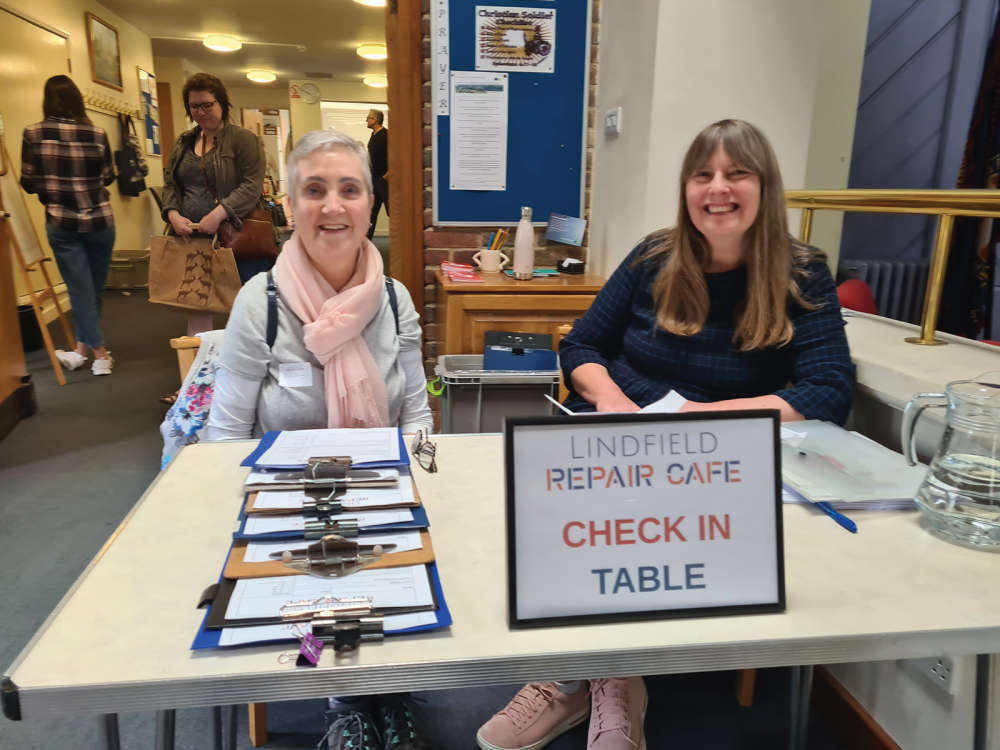 The Joy of the Repair Café
The Joy of the Repair Café
 Wills & Wakes
Wills & Wakes